That one didn’t impress me either.
Jeez, I hope Miracle Mile will do better. ![]()
Oh, so Bazzoni directed Man, Pride and Vengeance. That was superbore too. Now I only have to checkout Blugang.
That one didn’t impress me either.
Jeez, I hope Miracle Mile will do better. ![]()
Oh, so Bazzoni directed Man, Pride and Vengeance. That was superbore too. Now I only have to checkout Blugang.
Well, there you go. Le orme is a lot closer to The Keeps and Inland Empires of this world than to a conventional murder mystery or stuff like that.
Well, that’s a very straightforward affair, but very well made in my opinion. But then again, I have no idea whether you will like it as much as I do or whether you’ll even appreciate it at all, so… again… ehm, ehm… take it with a grain of salt.
Haven’t seen his spags yet, but I’ve seen his La donna del lago (1965), which I enjoyed immensely, and Giornata nera per l’ariete (1971), which had a great Morricone soundtrack, but was merely okay in my book. The former is similarly impressionistic in style, so I don’t think you would enjoy it much. ![]()
I’ve gotta check out his spags. Oddly enough, I haven’t got around to it so far and that’s got to change now.
Rewatched (finally) Once Upon a Time in America, as my bday flick. This time in the restored director’s cut. I have to say, I still dearly love the movie, and it is a masterpiece. But. But? But I think even though it’s Leone’s crowning achievement, it’s not his best movie. I still don’t quite get every aspect of the story, and no matter which version you prefer, they’re all a bit uneven.
It’s definitely his best film on a technical level at least.
I like that one actually, as well other Lynch’s movies.
I have nothing against impressionistic or surreal movies, the thing is, it is hard to make a good one - these type of movies are unfortunately mostly director wanking off about how genius he thinks he is.
Done. I bookmarked this one about a month ago via someone postapo list and then you reviewed it here, soit was time to finally watch it. Wow, this was superb. This time around I totally agree with your rating. My only complaint is that Denise Crosby should get more screen time.
What’s the easiest/cheapest way to get the director’s cut for someone living in Belgium? I’ve never seen the movie, and I want to see it the way Leone intended, not the ruined recut version.
I have the regular Warner BluRay…
for some reason super expensive and hard to get, but it might only be a matter of time until they re-release it
It’s not a recut.
The much shortened US version was barely released on Home video, and I think was already on VHS quickly replaced by the uncut version. Leone wanted originally release a longer version, but actually he wanted such for most of his previous films too. The 228 min version is in the end the DC, and the newer longer version is a first try to release an expanded version, but the new footage is of bad quality, and that’s probably the reason that some more scenes were not included.
For me OuTA is a lesser film compared to OuTW and GBU, his 2 masterpieces, the 228 min is already overlong, and the new scenes are more or less superfluous, make a dragging film only longer. Only one scene is interesting, that’s the one following the rape scene.
Frankly said Leone’s best films have all won from the need to create a shorter version under commercial pressure. If Leone could have released them bare from any commercial pressure, he would have destroyed them with needless repetitions.
I am interested in what your thoughts are with regard to other Villeneuve’s opuses. I liked Enemy, it didn’t leave much of an impression on me though. Perhaps I should re-watch it.
I like Villeneuve very much, all his films win with repeated viewings. I recently re-watched Sicario, and it was only now that I really got into the film, and the directing of every single shot is marvellous, the camera was always on the right place to an extent only the really great films do, and this really gave me a kick while watching it. Much more than the first time in the cinema.
I have nothing against impressionistic or surreal movies, the thing is, it is hard to make a good one
True. My point is that it’s not only hard to make one, but also its effect on the viewer is contingent on personal preferences particularly in the case of such filmmaking
director wanking off about how genius he thinks he is
Well, you’ve basically described about 80 percent of the filmmaking industry.
Done. I bookmarked this one about a month ago via someone postapo list and then you reviewed it here, soit was time to finally watch it. Wow, this was superb. This time around I totally agree with your rating. My only complaint is that Denise Crosby should get more screen time.
![]()
I think he is one of the best directors in Hollywood today if not the greatest one. The synchronicity of music and visuals in his films is absolutely mind-blowing, not to mention his knack for visuals and expertly grasp of storytelling, all of the above really show his love for cinema in general and clearly attest to his impressive artistic sensibilities. It’s so fucking amazing he is now taking on Dune. I believe he is actually capable of successfully bringing it to the big screen, I’m really looking forward to it.
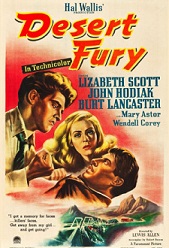
Desert Fury (1947) Good film noir.
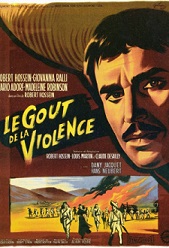
The Taste of Violence (1961) It gets better with repeat viewing. 
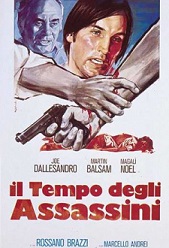
Season for Assassins (1975) When it comes to Joe Dallesandro’s films, you either like them or you don’t, this one i didn’t.
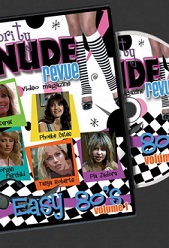
Celebrity Nude Revue-80’s Vol 1 (2011) Documentary- Good stuff.

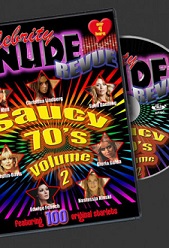
Celebrity Nude Revue - Saucy 70’s Vol 2 (2010)
Documentary-Some more good stuff here.

Last couple of weeks:
Kill Command (Gomez, 2016) 


Bumblebee (Knight, 2018) 

 - Best live-action Transformers pic by a country mile, although I appreciate that that’s not saying much
- Best live-action Transformers pic by a country mile, although I appreciate that that’s not saying much
Fyre (Smith, 2019) 



Climax (Noé) 


 - second viewing in four days but sod it, it’s brilliant
- second viewing in four days but sod it, it’s brilliant
The Sheik (Hecht, 2014) 



Gate of Hell (Kinugasa, 1953) 


Die Hard With a Vengeance (McTiernan, 1995) 


28 Days Later (Boyle, 2002) 


Birdman or (The Unexpected Virtue of Ignorance) (Iñárritu, 2014) 


Crash (Haggis, 2004) 




The Silence of the Lambs (Demme, 1991) 



No Country For Old Men (Coen/Coen, 2007) 



Unforgiven (Eastwood, 1992) 




The King’s Speech (Hooper, 2010) 



One Flew Over the Cuckoo’s Nest (Forman, 1975) 




The Woman in Black (Watkins, 2012) 


Lords of Chaos (Åkerlund, 2019) 



Wasn’t especially interested in this year’s Oscars so had myself a bit of a Best Picture Oscar Winner mini-marathon over that weekend with a few of my favourites.
Wasn’t especially interested in this year’s Oscars
I don’t blame you.
Just watched the Arrow release of Fernando DiLeo’s film “Milano Calibre 9”. I really liked it, good plot and interesting charachters. Seems like The Long Good Friday was very inspired by this!
Papillon (2018, Michael Noer)



Was there any need for a remake? Maybe not, but I never thought that the McQueen-Hoffman classic was that great and this remake was actually better than I had expected. Both actors do a good job (especially Rami Malek in the Hoffman role) and the movie paints a graphic and claustrophobic image of the inhuman French penal system during the first half of the 20th century. Unfortunately the script starts meandering after the one hour point and the film never gives you the idea that years and years are passing.
Offret/The Sacrifice (Swedish - 1986, Tarkovsky)



Tarkovski’s ultimate movie. I couldn’t get through it when I first watched it, but forced myself to finish it this time. Tarkovsky himself sustained that it is less impressionistic in structure than some of his previous movies; could be, but to me it all sounded rather familiar: the loss of spirituality, the eschatological fears, the references to Nietzsche and Dostoïevski, and man’s desperate efforts to avoid the inevitable, we’ve all heard and seen that before in movies that were more passionate and visually absorbing. The film is of course beautifully shot by Sven Nykvist, but his camera seems to float on Tarkovsky’s dreams and nightmares … almost endlessly. With a running time of 2 hours and 28 minutes the film is also way overlong.
Stella’s Oorlog/Stella’s War (Dutch - 2009, Diederik van Rooijen)


We are sending our young men to the other side of the globe to fight in wars (or secure peace, as we prefer to say), so it’s not surprising that we start getting movies about traumatic war experiences. This one was made for TV (but shown in some theatres); it tells its story from the point of view of a young woman, Stella, whose husband and younger brother both depart on a peace mission to Uruzgan. The younger brother is killed (supposedly in a road accident) and the husband returns traumatized. What really happened in Uruzgan? Well-meant, occasionally suspenseful but suffering from an overwrought, uneven script and some serious miscasting.
Shakespeare in Love (1998, John Madden)


 ½
½
Seven Oscars was a bit too much for a movie that essentially is a light-hearted romantic comedy drama. The name Shakespeare in the title is apparently enough to create the illusion that a movie is high art. It’s not a biopic, but a fantasy, it’s often superficial, but also clever and witty, especially for those familiar with the works of the Bard: the story told on-screen reflects the story presented on-stage (a perfect illustration of a play-within-a-play) and there are various details referring to existing theories about the origins and genesis of Shakespeare’s plays and/or his identity. Great acting from a fine cast, but I have no idea what Ben Affleck was doing in the movie.
Runaway (1984) - Director: Michael Crichton - 6/10 - A surprisingly engaging little sci-fi with a wholesome dose of humor and some retrofuturistic gadgetry. Despite its premise, the movie doesn’t delve into the more disquieting aspects of computerization and opts for a cheesy piece of entertainment which isn’t a bad thing really, 'cause it provides it in spades. There is nothing awfully remarkable about it and it never really strains to truly explore some deeper topics regarding the subject matter, but it is a ruggedly directed and executed piece of nonsense which doesn’t take itself too seriously.
Rambo: First Blood Part II (1985) - Director: George P. Cosmatos - 5/10 - I read somewhere it was supposed to be somewhat superior to its predecessor, so my expectations were set kind of high. I really appreciated the first installment of the series, so I decided to check this thing out. Regrettably, the somber atmosphere and its social commentary are supplanted with a mind-numbingly prosaic actioner formula; the script revolves around Stallone’s cult persona more than anything else and from the very get-go, the film’s crudeness manifests itself in its precipitous pacing and the paucity of some satisfactory buildup. Notwithstanding its complete coarseness and its laughable attempts at conveying some sort of social commentary, its action sequences are at least executed in a satisfying fashion and are probably the only reason why this doesn’t suck so bad. It is entertaining and passably paced, but it is nowhere nearly as good as the original.
Zardoz (1974) - Director: John Boorman - 5/10 - Sean Connery running around in a red diaper in the dystopian future? Count me in. There is no question that the film is an exceedingly pretentious affair with an overly complicated script and an array of abstruse narrative devices, but I must confess I enjoyed watching it immensely. A large portion of the film is an incomprehensible mess, but man, what an entertaining piece of hogwash it is. Some of its thematic concepts are fairly intriguing and quite thought-provoking, but I’d be lying if I denied laughing out loud at many a point during my viewing. Still, it is very inventive as far as its visual aspect goes as well as the story in and of itself isn’t all that bad.
Criminal Law (1988) - Director: Martin Campbell - 4/10 - The motion picture in question should be called ‘Jump Scare’, for the number of its employed jump scares is so high and its manipulative approach to narrative so grossly preposterous that the film becomes an absurd exercise in sensational filmmaking at its worst. The film’s problem lies with its desperate persistence in striving to take its audience aback practically every 15 minutes or so, virtually turning into a self-parody of sorts. Its premise constitutes an excellent departure point for a compelling legal drama, yet the movie completely squanders all of its dormant potential by plunging into the ludicrously overwrought and meretricious thriller formula, endeavoring to take advantage of cheap shock value via an inordinate amount of shlocky turnabouts and its tacky montage intended to scare us and keep us on the edge of our seats. While the film does boast some fairly impressive performances from Bacon and Oldman, most of its assets are practically negated by its trashy attitude towards building suspense and propelling the narrative forward. Again, Ebert’s review is pretty much spot-on.
Powaqqatsi (1988) - Director: Godfrey Reggio - 5/10
Cannibal Holocaust (1980) - Director: Ruggero Deodato - 5/10 - First and foremost, I have to say I was quite unprepared for the kind of nastiness I was in for. Sure, I watched some ‘video nasties’ prior to seeing this one, but they were all merely mildly disturbing, nothing too fancy to speak of. Holy shit, that was fucking brutal though, like really fucking brutal. I can’t imagine what watching it in 1980 must’ve been like, it must’ve felt like watching a bona fide snuff film. Secondly, I must say I was astonished at how well-made most of it was; it is a proficiently executed piece of filmmaking whose shock factor derives precisely from its impressive montage, special effects and the grubby direction. Deodato makes the best use of the crude format and the grungy grindhouse appearance and instead of going out of his way to compensate for the film’s low budget, he embraces the grimy aesthetics which additionally enhance the disturbing nature of the film. Therewith, I found Kerman’s performance to be astoundingly impressive; I had no idea whilst viewing the film he’d been a porn star at the time, so I was subsequently genuinely amazed to find out the truth about his past. I mean, sure, he swings his peepee in one scene, but his performance here doesn’t center on this aspect of his career, quite on the contrary; it is, oddly enough, purely reliant on his raw acting skills. Before entering the porn industry, he apparently started out as a classically trained actor and it shows here. With that being said, once the found footage portion of the flick kicks in, the film increasingly gets bogged down by its exploitative essence and ultimately devoured by its own sensationalism. I’m not even driving at the animal cruelty displayed in the motion picture, as most of the killings were done in a relatively clean, painless fashion (not exactly pleasant to watch convulsing corpses though). What I’m referring to is that the group of journalists is way too sociopathic or even psychotic to my liking; they seem hellbent on fucking around, butchering as well as eating animals, raping indigenous females and razing cannibals’ villages to the ground insofar as they begin to look like a bunch of complete lunatics. As a matter of fact, they appear so deranged that they seem willing to completely jeopardize their own safety, carelessly hopping around the rainforest and antagonizing the endemic population as though utterly disinterested in their own well-being. This element utterly obliterates the realism of the motion picture for me, nullifies all of its ostensible social commentary with respect to the nature of civilization or the lack thereof and last but not least, clearly attests to the primarily exploitative character of the movie. By the time Cannibal Holocaust was over, I grew pretty much desensitized to all the raping, killing and dismembering going on and the interminability of extreme violence somehow made the film lose its punch in the end, becoming more grueling than genuinely frightening or incisive. At least Ortolani’s soundtrack is top-notch and still sounds fantastic after all these years.
Knight Moves (1992) - Director: Carl Schenkel - 3/10 - It’s my second Schenkel movie and it’s even worse than the previous one. I think I’ve finally come to realization I truly dislike his style of filmmaking. It’s kind of hard to make a tedious serial killer motion picture, but well, here you go. Not only does the script seem to include every possible cliche in the book, but also Schenkel effectively maims the whole affair with some obnoxiously manipulative direction choices and fails to truly have a grip on the narrative which results in a general structural decomposition; the film just kind of falls apart, he never succeeds in reining in all those ubiquitous bromides and creating a somewhat coherent effort in the end. The whole affair is also stultified by some seriously cumbersome dialogues as well as rather cringeworthy theatrics, most notably in case of Baldwin, whose thespian exploits and forced, exaggerated outbursts may mar the venture at large just as much as Schenkel’s incompetence. It is an unsightly and preposterous work whose ridiculousness is too salient to ignore, but not pervasive enough to laugh at.
I Love a Man in Uniform (1993) - Director: David Wellington - 7/10 - An intriguing character study of a banker dabbling with acting in his spare time. He manages to get a role in a TV show, but his perfectionism regarding his pastime ultimately destroys him. While there is nothing particularly unique about it, I genuinely appreciated its detailed portrayal of protagonist’s identity crisis and his mental deterioration, which takes a toll on his relationship with other people and his employer.
The Four of the Apocalypse (1975) - Director: Lucio Fulci - 7/10 -> 8/10 - A re-watch.
The Beyond (1981) - Director: Lucio Fulci - 7/10 - Personally, I do not understand people taking issue with the lack of logic found in the plot; it is not supposed to make much sense and it doesn’t really center on delivering any concrete story, gravitating towards gruesome, raw imagery that is supposed to be disquieting rather than to compute on the whole. Its nonsensicality sinks in once the whole fabric of the storyline begins to dissolve towards the denouement and the entire affair acquires a distinctly surreal or mythical dimension of sorts. Salvati’s cinematography clearly favors bright light beams and endows the work with a distinctly bleary, whitish quality, which likewise reinforces the pervasive sense of otherwordliness.
Contraband (1980) - Director: Lucio Fulci - 3/10 - I find it hard to fathom why this is considered to be one of the most preeminent examples of the poliziotteschi genre, for it’s got to be one of the weakest films of this kind I’ve ever seen. Its one and only distinguishing factor is its gore and related special effects; other than that, there is hardly anything worth of note here and Fulci never really succeeds in establishing an adequately satisfactory story which could potentially constitute a good enough background for all the senseless brutality occurring on the screen. One can argue there are no good or bad characters in this one in the sense that the underlying tale is just a crude pretext to encase a number of splatter sequences. As a matter of fact, you can pretty much predict most of the story like fifteen minutes into the movie. I mean, yeah, there is a minor twist later down the road, yet it constitutes more of a flimsy permutation of another familiar narrative pattern and layering one formula on top of another does not really diversify the whole enchilada all that much. All in all, there is no disguising the fact that Contraband is an obnoxious case of a brazen cash-grab: the flick is this odd melange of crowd-pleasing comedy and sanguinary savagery presented in the most nondescript and coarse manner possible. This outlandish display of gory imagery, quasi-pornographic sexual violence as well as awkward comedic scenes never coalesces into a coherent whole and becomes even more unpalatable in the light of Fulci’s tenuous narration whose wayward trajectory completely undermines the focus of the story.
Dead Man’s Letters (1986) - Director: Konstantin Lopushanskiy - 8/10 - Probably one of the most infernal post apocalyptic feature films ever made. Lopushanskiy’s motion picture generally feels like an attempt to express the inner demons of the human race and to reify humanity’s self-destructive obsession with survival, which conflicts with our more humane, higher sensibilities, via the utterly sepulchral portrayal of the doomsday scenario. As you would expect from one of Tarkovsky’s disciples, Lopushanskiy is likewise preoccupied with the moral decay of humanity, but here it is mostly framed within the context of the anti-nuclear and anti-war message. On one hand, the director seems to condemn the ruinous consequences of human agency; on the other hand, he recognizes some of its achievements which attest to the inherently contradictory nucleus of the humanity tragically incapable of surmounting its own self-destructive tendencies and obviating its own doom. The entire venture possesses an incredibly downbeat tone and the sulphurously yellowish cinematography, which successfully endues Lopshanskiy’s vision with a singularly bleak appearance. It’s not an easy watch and the uniquely dispiriting atmosphere may put off some potential viewers, but the invariably impressive execution renders it one of the better films of its kind.
Masquerade (1988) - Director: Bob Swaim - 7/10 - While it is admittedly very easy to bungle a manipulative thriller of this kind, Masquerade proves to be much better than meets the eye. First and foremost, Swaim allows the story to unfold in a relatively natural manner without resorting to some painfully tacky montage or superfluously spiced up dialogues, still having a large number of surprising twists up his sleeve. The storytelling as well as character progression are carried out in a surprisingly dexterous fashion and Swaim carefully constructs a perplexing web of intrigue minus prematurely giving the game away, which helps to boost tension and preserve the aura of mystery for most of the running time. The considerately executed storyline replete with unpretentious turnabouts and unusual moral ambiguity is bolstered by equally impressive performances given by its lead actors, which considerably underpin the dramatic factor of the motion picture at hand. While one could definitely argue it is a trashy kind of filmmaking, Masquerade is the kind of trash entertainment that is rather difficult to pull off and immensely enjoyable if it is properly executed. Ebert’s review is spot-on once again.
Apartment Zero (1988) - Director: Martin Donovan - 7/10 - A bizarre drama about two emotionally disturbed roommates residing in an apartment located in Buenos Aires. The film has a genuinely disquieting atmosphere that’s additionally garnished by its pungent soundtrack. The opus feels somewhat perturbing partly by virtue of its moral ambiguity, psychological complexity and the fact that there are not many indicators as to what is going to happen next or in what direction it’s all supposed to go. This lingering sense of uncertainty and the suffocating ambience of uneasiness and despair progressively grow more intense and ultimately lead to the shocking resolution. Apart from having the oblique, inconspicuous narrative trajectory, the film is inhabited by a high number of eccentric characters, which likewise boosts all the weirdness and brings about all sorts of unpredictable, outlandish situations. Despite losing some of its elan towards the end, the effort nonetheless remains of the more interesting psychological dramas of the 1980s.
Rabid Dogs (1974) - Director: Mario Bava - 9/10 = 9/10 - A re-watch. - A grindhouse masterpiece.
Nightwatch (1994) - Director: Ole Bornedal - 5/10 - I can definitely see why this was a hit back in the day, but I thought it was merely okay. While the resolution is definitely stimulating and the whole unraveling of the mystery proved sufficiently entertaining to my taste, the rest of the movie just seems to go around in circles, never really erecting that satisfactory a story in order to endue the whole setting with some extra depth or emotional resonance. There is a limited number of suspects and a large chunk of the narration seems to portray occurrences of little importance. While some of its depicted background story was necessary for the adequate establishment of its primary characters, it feels like there is an inordinate amount of time dedicated to irrelevant details and the murder mystery in and of itself never really becomes three-dimensional for me; it simply feels like something’s missing.
Liebestraum (1991) - Director: Mike Figgis - 5/10 - Man, what a gorgeous looking piece of pretentious crap it is. Figgis really does know how to garnish a tale and artfully frame the development of the story within the context of this sumptuously looking feature film. Some aspects of the film such as the gilded cinematography or its skillful storytelling are definitely on the strong side, nevertheless, the problem lies with the fact that there is not enough story to tell and what could potentially obtain some extra depth through the extensive stylization becomes this cumbersome, heavy-handed and self-important piece of filmmaking. The issue with Liebestraum lies precisely in the fact that it takes itself way too seriously which manifests itself in a number of clunky dialogues as well as in the way it aims for the resolution of its story, taking on the guise of eminence and importance while having nothing particularly original or insightful to recount. Is it lavish and beautiful to look at? Certainly. Notwithstanding, a large chunk of the film is just too self-indulgent for me to take all of that seriously or at least as seriously as the director would want me to. With that being said, the movie still holds some strange appeal for me.
Mister Designer (1987) - Director: Oleg Teptsov - 4/10 - A bizarre drama/fantasy film about an artist who endeavors to defy God with mannequins he designs. Or something to that effect. It’s hard to summarize or even critique this flick, inasmuch as it is unintelligible, artsy-fartsy and opaque insofar as it becomes a cinematic enigma of sorts. I mean there is initially a conventional story at its core, but at some point the plot begins to disintegrate so to speak and what we’re left with is an exceedingly abstruse action expressed through its recondite imagery. I mean we still kind of grasp the general idea of what’s going on, but you’d be hard-pressed to clarify the meaning of each consecutive scene on a shot-by-shot basis. Some of it is appropriately ethereal and creepy, some of it is simply dogshit. I mean it’s a mixed bag really and a large portion of the film is executed in a rather flimsy fashion. With that being said, some parts are genuinely creepy and outlandish insofar as they have made a long-lasting impression on me for some reason. Weird shit, definitely recommended for those interested in esoteric cinema. Not that it’s good, some scenes are worth a look though.
Visitor of a Museum (1989) - Director: Konstantin Lopushanskiy - 7/10 - Another infernal post-apo from Lopushanskiy. The world has turned into a trash-filled hellscape and a large proportion of the human populace has transmogrified into a class of deformed and mentally challenged simpletons called mutants. In case of Visitor of a Museum, Tarkovsky’s influence becomes even more pronounced both in terms of the broached subjects, religious themes and the way it’s all portrayed. The issue plaguing the whole opus is Lopushanskiy’s apparent incapacity to attain a cinematic vision or language of his own, borrowing some ideas from Tarkovsky’s cinema while never sufficiently forging his own visual style or matching Tarkovsky’s level of mastery. The motion picture is still a very interesting and engaging piece of Soviet post-apocalyptic sci-fi, nevertheless, it is somewhat less inspired than Dead Man’s Letters.
The Taking of Flight 847: The Uli Derickson Story (1988) - Director: Paul Wendkos - 5/10 - A decent made-for-TV thriller about the plane hijacking. The flick distinguishes itself by being fairly impartial towards the portrayed events. The execution is so-so, but tolerable.
Rabid Dogs (1974) - Director: Mario Bava - 9/10 = 9/10 - A re-watch. - A grindhouse masterpiece.
Yes sir, i’ll drink to that!![]()